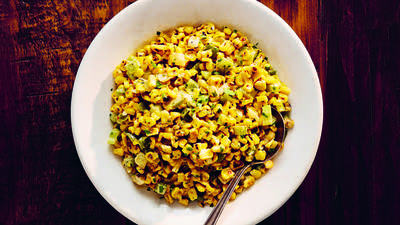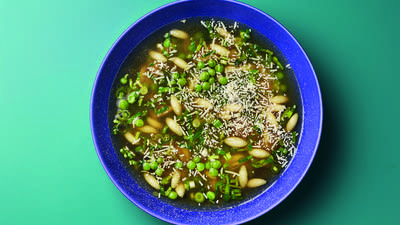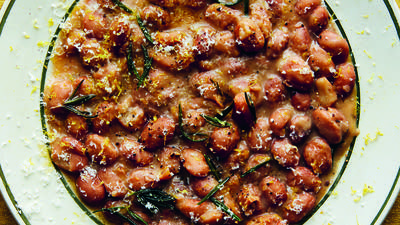
Dear Lynne,
How do you buy olives? Prices are all over the map, so how do you judge them? Then how do you decide which types to have for parties and for giving?
-Peter in Boston
Dear Peter,
A first option is to buy your olives where you can taste before deciding. They should be nothing short of luscious. To put them to the full test, count to 10 after swallowing to get their full character (a trick to remember whenever you're buying any cured food).
If you get the sense that you've just licked a salt cube, have a chemical aftertaste or a burning sensation, these come from lower-grade, industrially cured olives that are most likely fast-cured with lye. Lye's problem is it draws out a lot of the olive's natural flavor.
Prime flavor comes from slow curing olives over weeks in salt brine or a salt rub. Since labeling doesn't tell us much about curing methods, taste is what we have to depend on.
Where to find good olives
My first choice is places selling high-quality Mediterranean foods where people from those countries shop (as opposed to "gourmet" shops).
Next is the gourmet shops.
Then come olive bars in markets with fast turnovers because they make tasting possible. (And you can improve nearly any olive with the recipe below.)
If jars are the only option, check out the list below of olive varieties for selections. Then do some olive improvement with my recipe for olives.
The ultimate olive party collection
Here is what I think of as the ultimate olive party collection. You don't need them all, but the less familiar ones are worth seeking out. Store olives in the refrigerator, but in containers where they get some air circulation.
Oil-cured black olive (Italy, Morocco, Spain) - Crinkled up and intensely meaty and raisiny-tasting, nothing simulates these
Cerignola - Southern Italy's giant green and black olives are nearly sweet and melt like butter
Empeltre - From Spain with gentle tastes of almonds
Kalamata - Greek, snubbed as ordinary, but in fact a rich, wine-like olive, and a bargain
Arbequina - Little Spanish olives with a distinctive tang and sweet aftertaste
Nafplion - Greece's cracked, green, smokey-tasting olive
Picholine - France's green olive with tastes of citrus
How to enhance not-the-finest olives
It's heartening to know that a little good-tasting olive oil can raise the taste quotient of not-the-greatest olives, especially when you see heart-stopping prices for what are supposedly olives of the gods.
There's an olive trick people around the Mediterranean have used for ages with their fruit. A couple of days before serving your olives, rinse them off. Using a toothpick, poke a few holes in each olive, and sprinkle them lightly with good-tasting extra virgin olive oil. Put them in the warmest part of the refrigerator, lightly cover them so they have some air circulation. Serve them at room temperature.
If you'd like to gild the lily, you could flavor some with grated orange rind, pinches of oregano and black pepper; and another batch with chopped fresh rosemary and grated lemon. Pack these into jars and you've got a quick gift.
-Lynne
Before you go...
Each week, The Splendid Table brings you stories that expand your world view, inspire you to try something new, and show how food connects us all. We rely on your generous support. For as little as $5 a month, you can have a lasting impact on The Splendid Table. And, when you donate, you’ll join a community of like-minded individuals who love good food, good conversation, and kitchen companionship. Show your love for The Splendid Table with a gift today.
Thank you for your support.
Donate today for as little as $5.00 a month. Your gift only takes a few minutes and has a lasting impact on The Splendid Table and you'll be welcomed into The Splendid Table Co-op.




